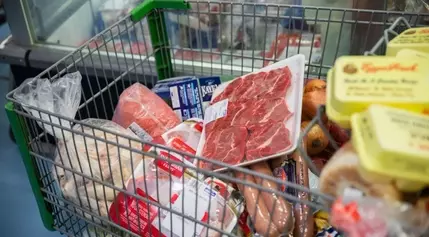Tackling the Unhealthy Grip of the UK Food Industry
The UK's food environment is relentlessly pushing consumers towards unhealthy choices, according to a new report by the Food Foundation charity. The report highlights the concerning influence of major food companies on the nation's dietary habits, with a lack of accountability and transparency in the industry. As the government prepares to introduce new regulations, the call for urgent action to address this public health crisis has never been more pressing.
Exposing the Unhealthy Dominance of the UK Food Industry
Snack and Confectionery Advertising Dominance
The report cites research that found just five companies - Haribo, Mars, Mondelez, PepsiCo, and Kellogg's - were responsible for over 80% of TV ads for snacks and confectionery aired before 9 pm. This overwhelming presence of unhealthy food marketing is shaping consumer behavior and "setting us up to fail" in making healthy choices.Concerning Levels of Salt in Restaurant Meals
The report also reveals that almost a third of major UK restaurant chains serve main meals where more than half of the options are "concerningly high" in salt. This highlights the need for greater transparency and accountability in the food service industry to ensure healthier options are readily available.Supermarket Promotions Favoring Unhealthy Products
The report found that almost one in five supermarket multi-buy offers are on meat and dairy products, with half of these offers on processed meat. This trend of promoting unhealthy products through discounts and promotions further reinforces the food industry's influence on consumer choices.Lack of Transparency and Accountability
The report's analysis of the UK's major food businesses' disclosure of data on the healthiness and sustainability of their sales paints a concerning picture. It found that just one in four of these businesses provide transparent data on the healthiness of their sales, with restaurant chains and fast-food outlets being the least transparent.Disproportionate Influence on Policymakers
The report also highlights the disproportionate influence of the food industry on policymakers, with food industry representatives and their trade associations meeting with Defra ministers 1,377 times between 2020 and 2023 - more than 40 times more than the meetings held between food non-governmental organizations and Defra ministers.Calls for Urgent Government Action
The Food Foundation and the Lords Food, Diet and Obesity Committee are calling on the government to introduce mandatory reporting by all large food businesses on both the healthiness and sustainability of their sales. They argue that this, along with the introduction of fines for non-compliance, is crucial to create a level playing field and incentivize businesses to prioritize public health over profits.Industry Response and Commitments
In response to the report, the Food and Drink Federation (FDF) has acknowledged the industry's responsibility in addressing obesity and poor diets, highlighting the progress made in creating healthier options and reducing the contribution of their products to the British grocery market. However, the industry also calls for the government to provide clear guidance and regulations to enable further progress.Brands Defend Their Efforts
Individual companies, such as Mars, have also responded, emphasizing their commitment to responsible marketing, product innovation, and reformulation to offer healthier options. They argue that they are adhering to advertising rules and preparing for further regulations, but call for the government to provide clarity and guidance to support their efforts.The Urgent Need for Systemic Change
The report's findings and the calls for action from various stakeholders underscore the urgent need for a comprehensive, government-led strategy to address the public health crisis posed by the UK's food environment. By introducing robust regulations, increasing transparency and accountability, and creating a level playing field, the government can empower consumers to make healthier choices and hold the food industry accountable for its role in shaping the nation's dietary habits.
















































































